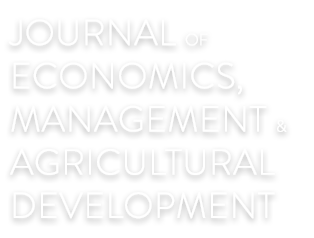Authors
ABSTRACT
Through the Farmers Information and Technology Services (FITS) program,
extension services in the form of trainings and seminars, and education and
communication materials were provided to rice farmers in Albay. Using farm-level input-output data covering the wet season of 2014 and the socio-economic and farm-specific characteristics of randomly sampled 30 farmer beneficiaries and 30 non-beneficiaries, a stochastic production function and technical inefficiency model were estimated. Results of the study reveal that beneficiaries have higher input utilization, yield and technical efficiency than non-beneficiaries. Furthermore, the amount of seed and fertilizer significantly and positively affects the yield of rice. In addition, the number of trainings and seminars attended, number of information, education and communication (IEC) materials availed, and distance of farms to FITS center are the significant determinants of technical inefficiency. The problems encountered in rice production are the occurrences of typhoons and floods, high cost of inputs, insufficient capital, pest infestation and limited knowledge of new farming technologies. It is recommended that non-beneficiaries be encouraged to participate in FITS program and form farmers’ association, irrigators’ association or cooperative, as well as monitor the performance of farmer beneficiaries.

